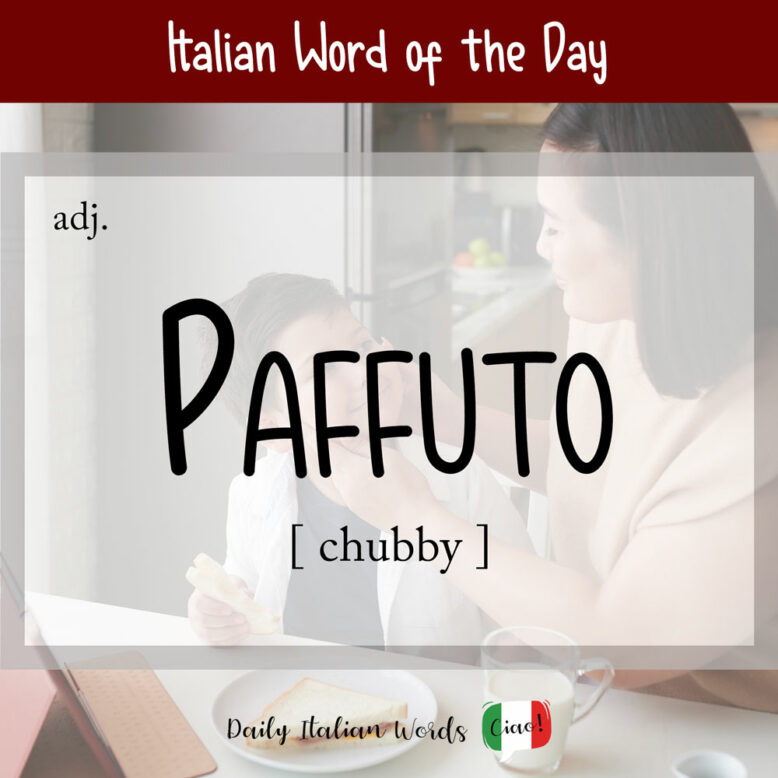One of my favourite Italian words of all time is the onomatopoeic paffuto which translates as chubby or plump in reference to people and certain body parts.

Unlike grasso (fat) which could be interpreted as an insult, paffuto has a cute ring to it and tends to be used to describe children more than adults.
Because it is an adjective, the ending changes according to the gender and/or plurality of the subject being described.
- paffuto = masculine, singular
- paffuta = feminine, singular
- paffuti = masculine, plural
- paffute = feminine, plural
Although most often used to describe the face (viso) and cheeks (guance), you can also use it to talk about other specific body parts like the arms (braccia), hands (mani) and legs (gambe).
Il bambino ha le guance rosse e paffute.
The baby has plump red cheeks.

Diventare paffuto translates as to plump out.
The diminutive form is paffutello which means the same thing as paffuto but sounds even more endearing.
If you’re looking for a synonym for paffuto, rest assured there are plenty, including:
- grassottello = derived from grasso (fat)
- grassoccio = derived from grasso (fat)
- pienotto = the diminutive of pieno (full)
- cicciotto = derived from ciccia (fat)
Heather Broster is a graduate with honours in linguistics from the University of Western Ontario. She is an aspiring polyglot, proficient in English and Italian, as well as Japanese, Welsh, and French to varying degrees of fluency. Originally from Toronto, Heather has resided in various countries, notably Italy for a period of six years. Her primary focus lies in the fields of language acquisition, education, and bilingual instruction.


